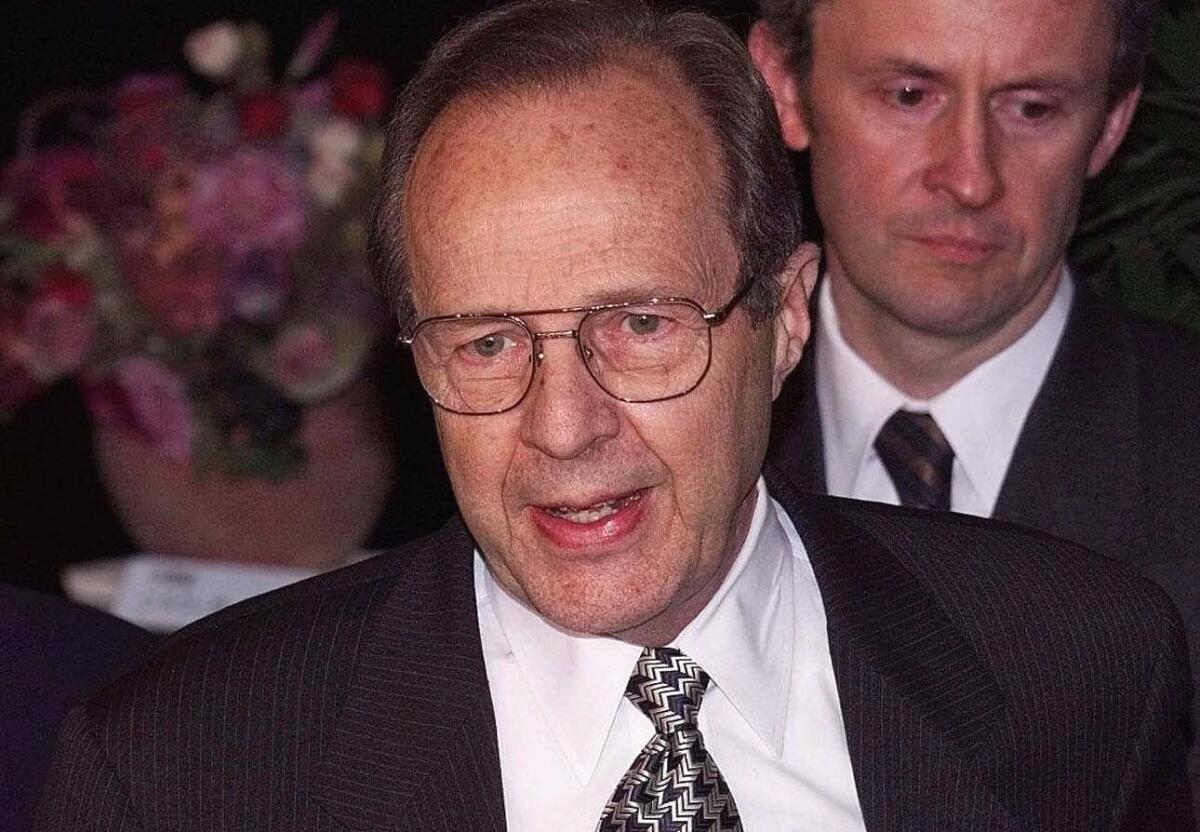Q&A: Former Defense Secretary William Perry on why we didn’t go to war with North Korea

- Share via
Reporting from New York — In 1994, the United States was on the brink of war with North Korea. The Clinton administration had intelligence that North Korea was about to move fuel rods from its nuclear reactor at Yongbyon, north of Pyongyang, to a reprocessing center — the first step in making a nuclear weapon.
The Pentagon drew up plans to destroy the facility with cruise missiles and F-117 Stealth fighters. William J. Perry, who as Defense secretary had drawn up the plan, ultimately decided not to proceed. Although he believed the Pentagon could safely destroy the plant without spreading radiation, he also thought that North Korea would retaliate against South Korea, and that the hostilities could engulf the region in a cataclysmic war.
The Clinton administration instead struck a deal to provide North Korea with energy assistance in exchange for a nuclear freeze. That deal fell apart in 2002 amid evidence that North Korea was cheating. Perry, now an 88-year-old professor emeritus at Stanford University, remains convinced that the Clinton administration did the right thing in averting military action, although North Korea’s nuclear program has continued to expand.
In an interview from Palo Alto, he explained his reasoning back then and his fears for the future.
With the Trump administration reportedly considering military action to stop North Korea’s nuclear program, we are in a similar situation. Do you feel like this is ‘Groundhog Day,’ the same dilemmas repeating themselves?
The situation is different in many respects today than it was then, but I think the answer is still the same. Which is it’s not yet time to conduct strikes against North Korea. That time might come, but I think there is still room for creative and constructive diplomacy. The reason I feel so strongly about that is the consequences of a strike. This is not like the Syrian operation where we conducted a strike which we think was relatively cost-free to us militarily. In the case of North Korea, for whatever benefits we might accrue from the strike, and they might be substantial benefits, there is a very significant downside. Chapter one in this book could be a happy story: chapter two is what we have to worry about.
So what would happen after the U.S. conducts an airstrike against North Korea?
I think with high confidence, there is going to be a military reaction from North Korea. Not a nuclear attack as they‘ve threatened, rather a conventional but still quite destructive attack against South Korea. We have to care about South Koreans as much as we worry about U.S. citizens; they are our allies and they count. There will be significant military consequence for South Korea. That’s chapter two and it’s not a very happy story, but chapter three could be catastrophic.
How could it get worse? Aren’t U.S. and South Korean forces combined much stronger than North Korea?
Our troops are in South Korea. If North Korea attacks, we do respond to it. It could start as a relatively minor conflict, but it is all too likely to escalate into a bigger war and ultimately into a nuclear war. I have no doubt that in a war with North Korea, the U.S. and South Korea have quite superior forces and we would win. But let’s raise the question what North Korea’s objectives are. Because I believe this is not a crazy regime; it is an evil regime, it is a reckless regime, but it’s not crazy. They are oriented almost entirely around regime survival and therefore they are not going to undertake an unprovoked nuclear attack against South Korea anyway. That’s bluster. They are not suicidal. They recognize if they do that their leaders will be killed and their country devastated. They know there will be a nuclear response against them. But if we get into a conventional war and they start losing it, and they see the regime falling anyway, then they might take some last, desperate Armageddon approach. From all of my experience with them, and I worked with the North Korean problem now for several decades and I’ve met with North Korean leaders many times, I think this is a sobering and a worrisome forecast of what could happen.
Are you opposed to military action in North Korea under any circumstance?
I am not opposed to military action forever. I think it is something we always ought to hold as an option. But I think it premature. I think we still have significant diplomatic steps, but it must be in conjunction with China. If you put the incentive and disincentive package together, and we add China to the mix, we have enough. We’ve never been able to get them to cooperate in the past, but now might be the time. First of all, I think North Korea is taking us seriously, fearing that we might conduct military action. Secondly, and more importantly even, China is now concerned. If we make the right proposal and they join forces with us, it will be a very powerful diplomatic approach. The opportunity is there; I hope we don’t muff it.
ALSO
Trump administration faces few good military options in North Korea
Here’s why North Korea is a potential train wreck in motion
More to Read
Sign up for Essential California
The most important California stories and recommendations in your inbox every morning.
You may occasionally receive promotional content from the Los Angeles Times.










